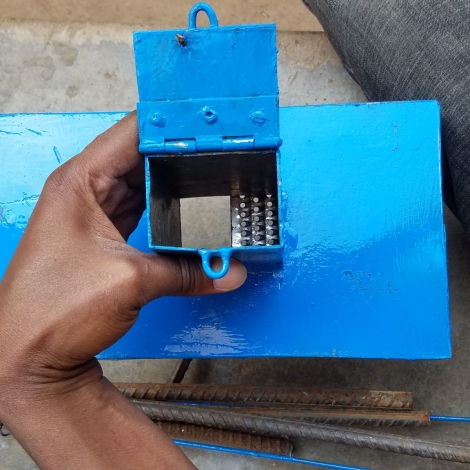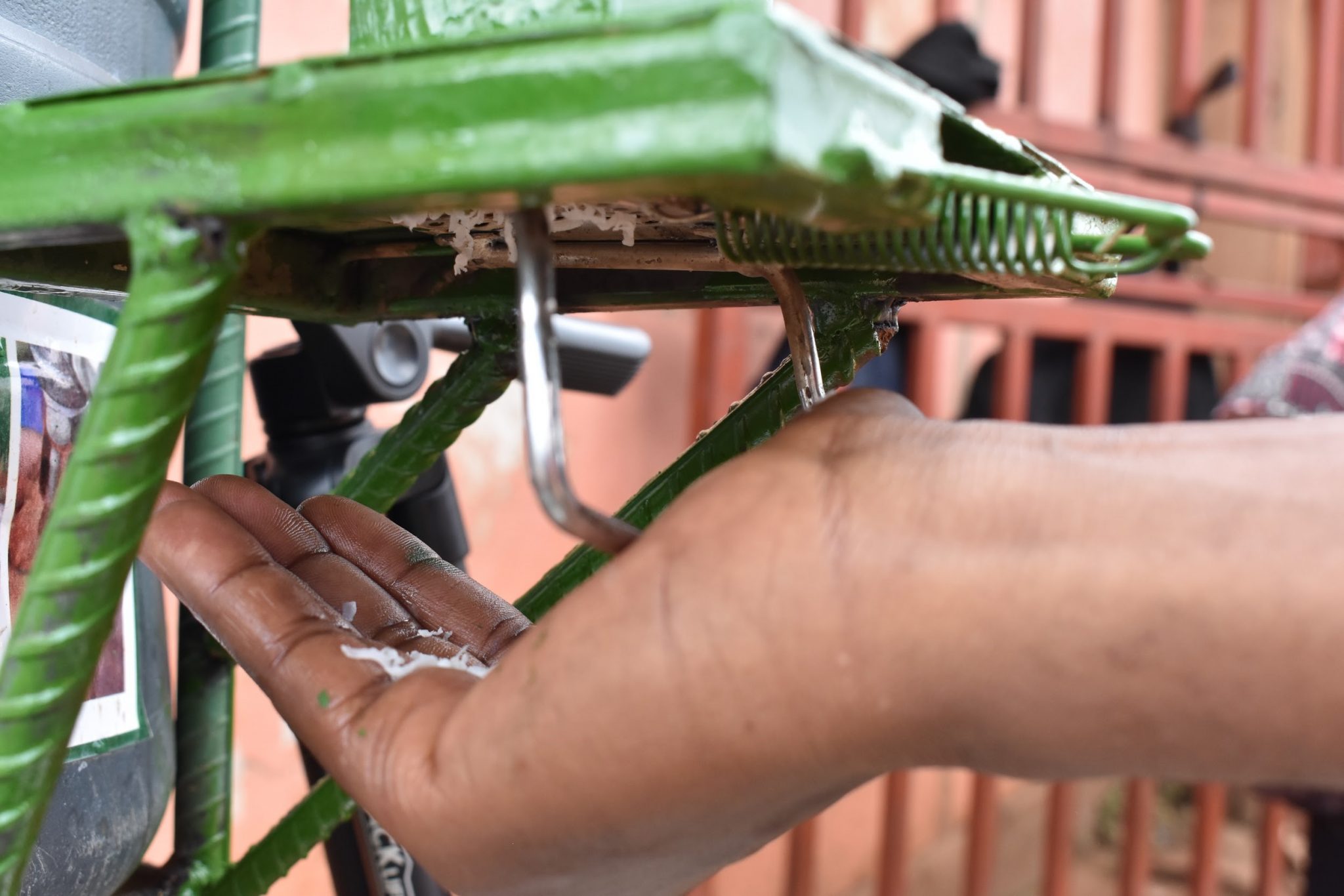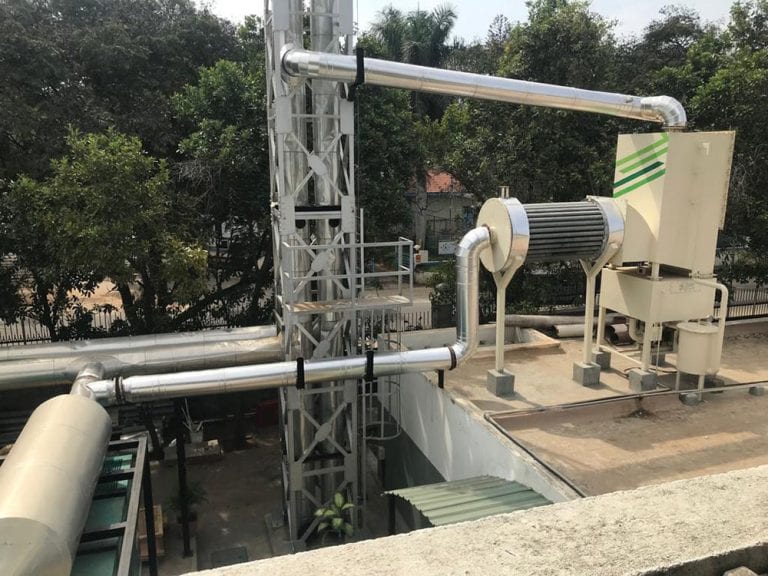A soap dispenser built around a spring-loaded cheese grater won a design contest in Kampala. The soap dispenser is simple, affordable and already scaling up to serve 200 locations around the capital of Uganda.
Ali Kabona, a 25-year-old telecommunications engineering student at Makerere University in Kampala won a design contest by Response Innovation Lab for a better soap dispenser. With the pandemic pressing the need to provide handwashing soap in public places, Engineers Without Borders – USA partnered with Response Innovation Lab in Uganda to field ideas from local innovators. Response Innovation Lab hosted the design contest and EWB-USA helped innovators test their ideas and scale the winning design.
The problem was local, created by conditions particular to Uganda and, to some extent, other emerging economies. Soap bars can harbor bacteria, disintegrate quickly, and they have a tendency to walk away. Liquid soap may seem like the solution, but it is more expensive than bars, in some cases prohibitively so. Liquid soap is not always accessible or sustainable, says Richard Mutabazi of the Kampala City Council Authority (KCCA).
The design contest sought to find a way to provide solid soap at public handwashing stations, and to do it quickly as the pandemic was spreading. When Covid-19 struck, innovators quickly realized that their communities were at risk and that they could potentially address the situation, says Charlene Cabot, Innovation Lab Manager for Uganda.
“Ugandans are quite creative and resourceful and there are large networks of skilled inventors working within the country,” Ms. Cabot says.
Ms. Cabot tapped into that community. Response Innovation Lab issued a call for “Solid Soap for Public Handwashing Stations in Uganda.” A webinar the organization hosted drew 45 attendees and spelled out the design criteria.
- People should not come into physical contact with the bar of soap
- The soap needed to be in a lockable container
- The dispenser had to be easy to use
- It also had to be low cost
- Made from locally available materials
- Have the potential to be mass-produced
- Flexible enough to mount to multiple handwashing station designs
Within 10 days of launching the challenge, Response Innovation Lab hd received 31 applications. The short time frame was deliberate, as having the soap dispensers designed, fabricated, and installed would be time consuming and the global pandemic was already underway.
Mr. Kabona’s winning design pushes a modified cheese grater along the bottom of a bar of soap, dropping flakes into the user’s hand. The first prototype was foot operated with a pedal, but testers in field tests suggested that it took too long. As Mr. Kabona explains in the video below, he modified the design to a hand-operated mechanism. Now he is scaling up to weld dispensers to handwashing stations around the city. Charles Mubache, the chair of the Ntinda Market, has already placed an order for 200 of the winning devices.
The solution was local. As supply chains are challenged around the world with COVID-19, an increase in localization is paramount to solving problems efficiently, and with lasting solutions. The Soap Challenge is an example of how global institutions can work together to support localization of problem-solving during humanitarian emergencies.


